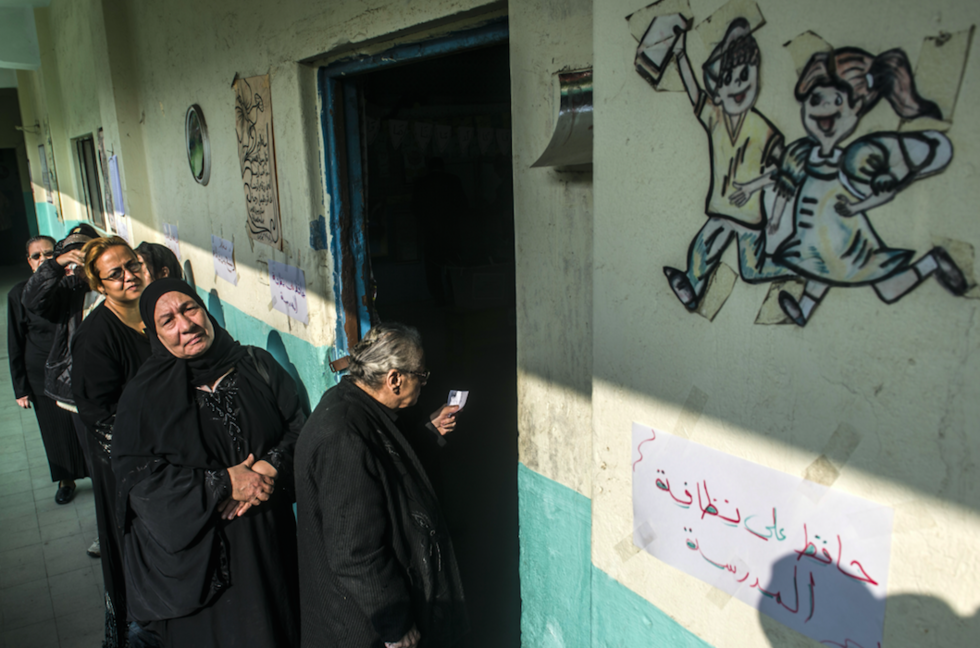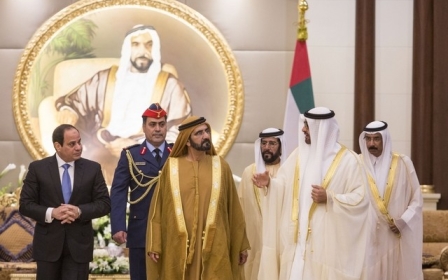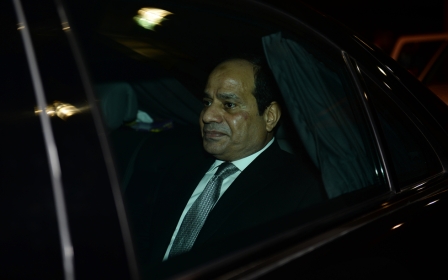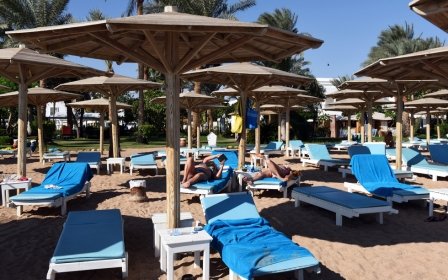Second stage of parliamentary vote kicks off in Egypt

Egyptians began voting Sunday across 13 of the country's 27 provinces in the second phase of parliamentary elections after a low turnout marred the first stage in the absence of any serious opposition.
The election is expected to elect lawmakers who firmly back President Abdel Fattah al-Sisi, who has crushed all forms of dissent since ousting his Muslim Brotherhood predecessor Mohamed Morsi in July 2013.
According to state-owned al-Ahram newspaper, more than 55 million people are eligible to vote in the election, with more than 27 million eligible to vote during October's first stage and 28 million in the second round.
A total of 282 parliamentary seats are being contested on Sunday, with 222 reserved for independent candidates and 60 allocated to party-based lists, al-Ahram said.
Polling for the two-day second phase opened at 9:00 am (0700 GMT) across 13 provinces, including in Cairo, but few voters were seen trickling in to cast their ballots.
Only a dozen voters waited at three polling stations in the capital's central district of Shubra, AFP reported.
The first round of the election was held across 14 of the country's 27 provinces on October 18 and 19, and produced an official turnout of 26.6 percent. Other estimates put the number at below 20 percent.
A run-off held days later produced a lower official turnout of 21.7 percent.
If necessary, the second phase will have a run-off at the start of December. A run-off is held after the initial voting fails to produce a winner with a clear majority.
Analysts expect voting to be low in the latest phase too, given the overall lack of interest among voters who expect the new 596-member parliament to simply rubber-stamp Sisi's decisions.
Sisi continues to have support amongst some Egyptians tired of years of political turmoil triggered after the 2011 overthrow of long-time strongman Hosni Mubarak, but analysts suggest that the tide against his leadership appears to be turning both internally and externally.
Leaked documents, seen by Middle East Eye, seem to suggest that the Abu Dhabi leadership, which has been a key supporter of Sisi, could be growing tiered of pouring in billions of dollars of cash to help Sisi. Some reports have gone further, suggesting that Riyadh - another key Sisi backer - could be eying alternatives for the presidency.
Egypt's previous general election was held in 2011 at a time of widespread enthusiasm, months after the overthrow of Mubarak, and the first round saw turnout of 62 percent.
The resulting Islamist-dominated parliament was dissolved in June 2012, days before Morsi became the country's first freely elected president.
Morsi was deposed a year later by then army chief Sisi after mass street protests against the Muslim Brotherhood's divisive one-year rule.
Sisi was elected to succeed him in 2014 after brutally crushing all forms of opposition - supporters of Morsi's Muslim Brotherhood as well as secularists and leftists.
The Brotherhood, for decades the country's main opposition group, has been blacklisted as a "terrorist" group and banned from competing, while several secular parties are either boycotting the latest polls or are badly represented. Since Morsi's overthrow, some 40,000 people have been imprisoned, more than 1,400 killed in government crackdowns largely on protesters, while hundreds more, including Morsi, have been sentenced to death in widely criticised mass trials.
New MEE newsletter: Jerusalem Dispatch
Sign up to get the latest insights and analysis on Israel-Palestine, alongside Turkey Unpacked and other MEE newsletters
Middle East Eye delivers independent and unrivalled coverage and analysis of the Middle East, North Africa and beyond. To learn more about republishing this content and the associated fees, please fill out this form. More about MEE can be found here.




